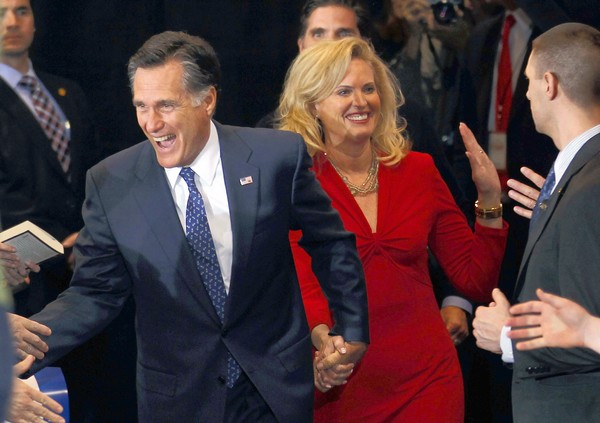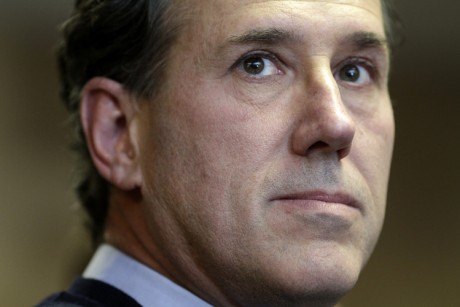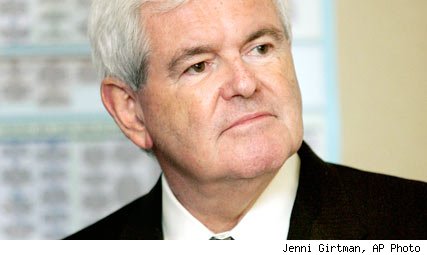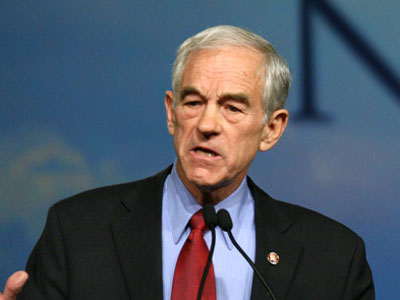West Long Branch, NJ (The Verge) – For a brief time, the once unknown former-Pennsylvania Senator Rick Santorum sat atop national polls. But a lackluster performance in CNN’s Arizona debate led to less-than-ideal results for the candidate. Following the February 28 primary voting, Mitt Romney took popular votes in two states that could have been dominated by Santorum. Romney’s win in Arizona and popular advantage in Michigan gave him a substantial delegate lead over the other three candidates. Approaching Super Tuesday voting, where 437 delegates are at stake, we find candidates scrambling to pull in conservative voters to take a shot at Romney’s lead.
Santorum left the Arizona debate bruised and broken, and following two questionable remarks, left Michigan in a less than ideal situation. Instead of taking the state, he finished three percentage points behind the former governor in the popular vote and took half the state’s delegates. This could have been a different story, that is, if Santorum didn’t jab at President Obama, calling him a snob, and mock John F. Kennedy’s separation of church and state speech. These statements, made by Santorum recently found him receiving harsh criticism which hit his campaign trail in Michigan hard. He lost his double-digit lead in the state following this set of events; really he dug himself a hole.

As a highly populated state of Mormons, Arizona would be a ‘no-brainer’ win for Mitt Romney, who himself is of the Mormon faith. He took the state with ease on Tuesday and quickly moved on to bid his campaign forward to the Super Tuesday states. All the while the recent victories sank in, Romney was hit with more good news. As more confirmed votes from the February Wyoming caucus came in, it was made clear that he was the winner. With a triple set of victories, Romney took a delegate lead of about 53.
Attempting to deny the claim that the race has turned into a two-person clash, Newt Gingrich has vowed to make strong showings in southern states during Super Tuesday. Really, with his campaign at stake, he had better hope to pull a few victories to remain a viable candidate.
As for Ron Paul, he has been counting on Super Tuesday caucus votes and has been campaigning in Washington state. Although near the bottom of the pack, the libertarian showed a strong debate performance in Arizona, calling Rick Santorum “a fake” and grilling the front-runner. Although trailing Mitt Romney by a large margin, Paul has remained a prominent figure in the election scene. Tuesday’s voting in twelve states will really show if his campaign has anymore staying-power.
To make note, states voting on Tuesday include: Alaska, Georgia, Idaho, Massachusetts, North Dakota, Ohio, Oklahoma, Tennessee, Vermont and Virginia. The busiest night of the primaries, this will prove to be the decision maker, indicating Mitt Romney’s lead margin and the strength of the remaining candidates.
Now that we’ve summarized the latest happenings of all the GOP candidates, a little opinion thrown in the mix couldn’t hurt. Again, as purely an opinionated thought, my feelings, along with CNN Political Analyst David Gergen, indicate that Mitt Romney’s triple victory this week prove to solidify his spot atop the leader board. Romney will not crumble under any more pressure, and will cast aside the other candidates, who he admittedly stated do not have acceptable resumes, and take the 1,144 delegates needed to earn the nomination. Coached in debate, keen on economic issues, and with strength in national polls versus Obama, Romney stands as the party’s best shot at beating President Obama in November. Many Republicans, not liking the “he’s our best shot but not ideal choice” mentality, see a weak GOP field and have shown their frustration in exit polls. If they are to garner enough support to take the White House in 2012, they will need to really need to do their homework.
No fact checker is needed to attest the fact that under these conditions, the Republicans must change tenfold to seal their bid.
DELEGATE COUNT (in photo captions): According to NY Times, 2/29/12








